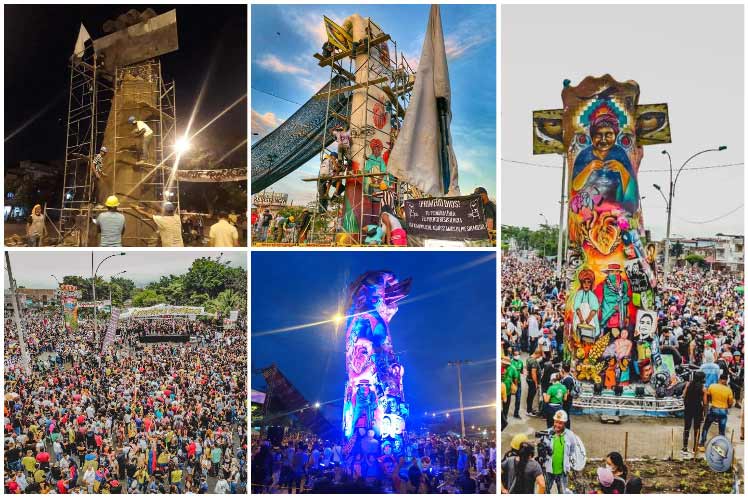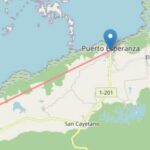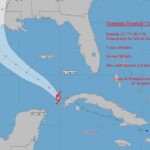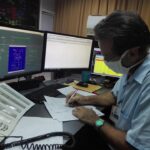Bogotá: The mobilizations and protests will continue today in Colombia, while the rapprochement between the government and the National Unemployment Committee remains on hold, Prensa Latina publishes.
A monument to the Resistance was unveiled this Sunday in Cali, one of the cities with the most deaths, injuries and disappearances due to police violence against peaceful protesters.
‘Do you know why it is the best monument in Colombia? Because the people did it without resting, they worked day and night with their hands and their dignity to honor the struggle and those who fell in it, thank you Puerto Resistencia”, agronomist Francisco Romero said.
With concerts and several cultural events and before thousands of people in Puerto Resistencia, the inauguration of the work took place.
On April 28, a strike began in Colombia against a tax reform proposal presented by the government of Iván Duque and rejected by a large part of the population.
Although the measure was withdrawn to study it and change its text, the mobilizations continue in the country.
According to the senator of the Indigenous and Social Alternative Movement Feliciano Valencia, in 47 days the national strike managed to stop the tax reform, the Health reform, the resignation of the Minister of Finance Alberto Carrasquilla, of Chancellor Claudia Blum and the commander of the Cali Police, Juan Carlos Rodríguez.
Likewise, it allowed to prevent the purchase of 24 warplanes for a millionaire sum and to end the daily speeches of the Prevention and Action program, in which President Iván Duque appeared every day to discuss issues related to Covid-19.
Valencia added that free enrollment for the second semester of this year was achieved for public higher education students from the lowest strata.
The strike managed to position the need for a structural reform in the National Police, make visible the youth, the First Line and the indigenous Minga as revolutionary actors, the politician assured.
In the same way, it allowed to promote citizen participation (assemblies and open councils), make visible to the world the political and social crisis that Colombia is experiencing with the Duque government and prioritize life and peace over football.
In his balance, he also pointed out that the mobilizations managed to re-signify the country’s historical memory and that a large part of Colombia declared itself contrary to the doctrines promoted by former president Álvaro Uribe, founder of the ruling Democratic Center party.
In addition, it made it possible to expose the massive and systematic violation of human rights by the Public Force and the demand to dismantle the Mobile Anti-riot Squad.
A monument to the Resistance was unveiled this Sunday in Cali, one of the cities with the most deaths, injuries and disappearances due to police violence against peaceful protesters.
‘Do you know why it is the best monument in Colombia? Because the people did it without resting, they worked day and night with their hands and their dignity to honor the struggle and those who fell in it, thank you Puerto Resistencia”, agronomist Francisco Romero said.
With concerts and several cultural events and before thousands of people in Puerto Resistencia, the inauguration of the work took place.
On April 28, a strike began in Colombia against a tax reform proposal presented by the government of Iván Duque and rejected by a large part of the population.
Although the measure was withdrawn to study it and change its text, the mobilizations continue in the country.
According to the senator of the Indigenous and Social Alternative Movement Feliciano Valencia, in 47 days the national strike managed to stop the tax reform, the Health reform, the resignation of the Minister of Finance Alberto Carrasquilla, of Chancellor Claudia Blum and the commander of the Cali Police, Juan Carlos Rodríguez.
Likewise, it allowed to prevent the purchase of 24 warplanes for a millionaire sum and to end the daily speeches of the Prevention and Action program, in which President Iván Duque appeared every day to discuss issues related to Covid-19.
Valencia added that free enrollment for the second semester of this year was achieved for public higher education students from the lowest strata.
The strike managed to position the need for a structural reform in the National Police, make visible the youth, the First Line and the indigenous Minga as revolutionary actors, the politician assured.
In the same way, it allowed to promote citizen participation (assemblies and open councils), make visible to the world the political and social crisis that Colombia is experiencing with the Duque government and prioritize life and peace over football.
In his balance, he also pointed out that the mobilizations managed to re-signify the country’s historical memory and that a large part of Colombia declared itself contrary to the doctrines promoted by former president Álvaro Uribe, founder of the ruling Democratic Center party.
In addition, it made it possible to expose the massive and systematic violation of human rights by the Public Force and the demand to dismantle the Mobile Anti-riot Squad.





